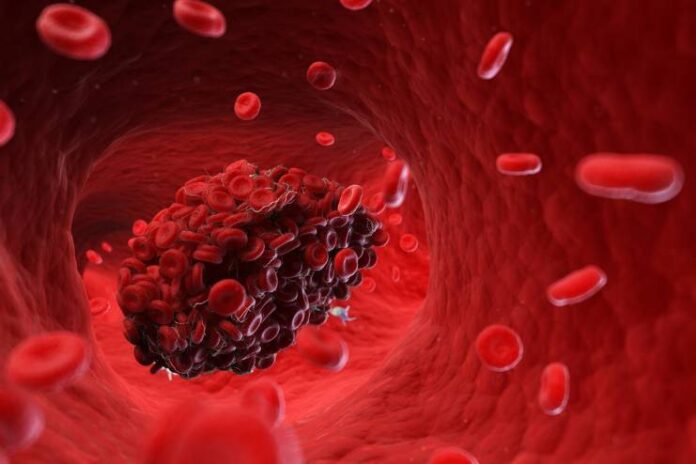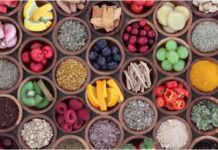Affiliate Disclaimer
Some links in this article are affiliate links. We may earn a small commission if you make a purchase through these links, at no extra cost to you. We only recommend products we find useful to our readersPreventing blood clots is essential to prevent serious conditions such as Deep Vein Thrombosis (DVT) and Pulmonary Embolism (PE). While medical protocols have recommended treatments and lifestyle changes, there is increasing interest in natural remedies. It is important to know which of these natural remedies work and which do not. Relying on unproven methods can cause serious health risks. This article will shed light on some of the natural remedies for blood clot prevention so that you can make an informed choice for your health.
1. Garlic
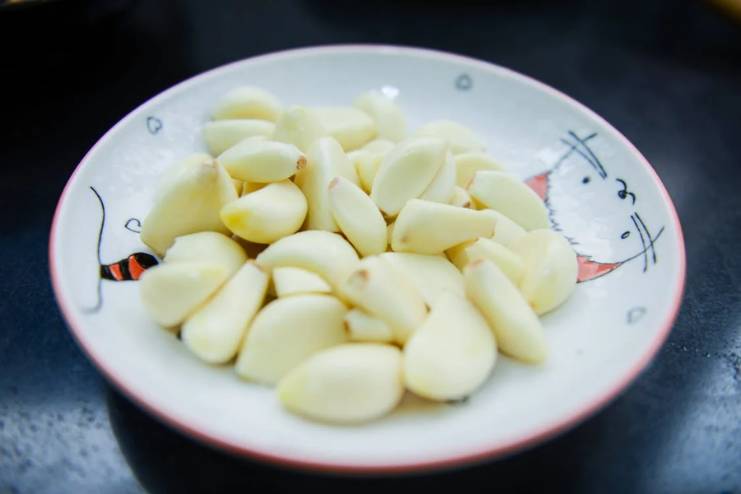
Garlic has numerous health benefits. It works as a natural anticoagulant because of allicin, a sulfur compound released from the chopping, crushing, or chewing. Allicin prevents platelet aggregation, disrupting the formation of blood clots.
Several studies have highlighted garlic’s anticoagulant properties.
- A 2018 rodent study provided evidence of garlic’s antithrombotic activity, suggesting its potential to prevent blood clots.
- A 2020 review noted that garlic supplements could help reduce blood pressure and exhibit mild antithrombotic effects in individuals with hypertension.
- A 2015 review indicated that garlic might influence platelet function and coagulation. However, it is recommended to be cautious with its use before surgical procedures.
2. Turmeric
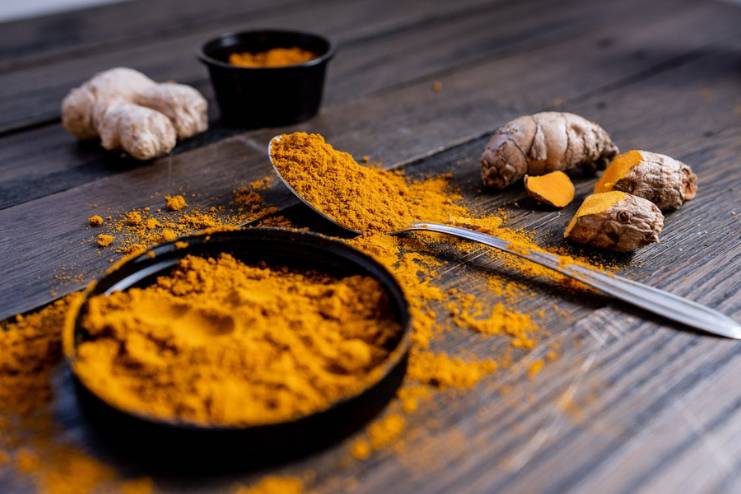
Turmeric has medicinal properties because of curcumin. Curcumin is responsible for the anti-inflammatory, antioxidant, and anticoagulant activities that make turmeric a natural medication against many diseases.
Curcumin, the major active compound of turmeric, inhibits blood clotting by inhibiting clotting factors. It does so by enhancing the function of endothelium, which lines blood vessels. It plays a major role in blood pressure regulation and clotting.
Research supports turmeric’s potential as a natural blood thinner.
- A 2017 review highlighted curcumin’s anticoagulant, anti-inflammatory, and antioxidant properties, suggesting its role in preventing blood clots.
- A 2019 review showed that turmeric might have a role in inhibiting blood clotting. It, however, warns of its use in conjunction with blood-thinning drugs. Despite these promising findings, further research is required to prove turmeric’s effects on blood clotting.
3. Ginger
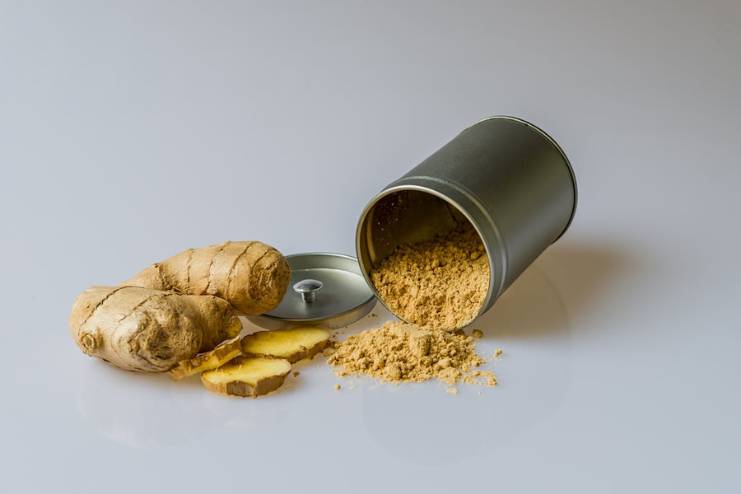
Ginger is a natural blood thinner that comes with numerous health benefits. The root contains salicylate, an organic compound similar to aspirin, and gingerols, which have been found to exhibit antiplatelet and anticoagulant effects in various research studies.In fact, Salicylate content in ginger acts as a blood thinner. This makes ginger beneficial in improving circulation and reducing the risk of conditions like Deep Vein Thrombosis (DVT).
- A 2015 literature review highlighted that ginger is likely to inhibit blood clotting by reducing the levels of thromboxanes in the blood.
4. Ginkgo Biloba
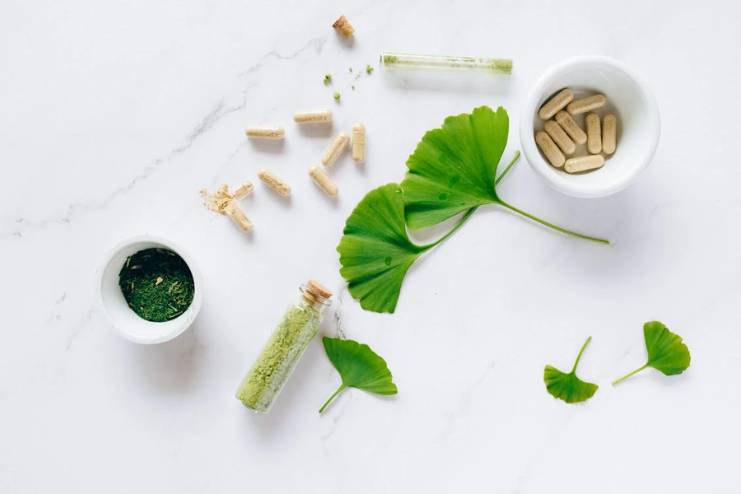
Ginkgo biloba is a Chinese plant traditionally used in herbal medicine to improve blood circulation and as a blood thinner. It is considered a popular dietary supplement and shows a wide range of therapeutic benefits associated with circulatory health.
Ginkgo biloba improves blood circulation by acting against platelet aggregation, which decreases the potential for blood clotting. The active ingredients of ginkgo biloba, flavonoids, and terpenoids, contribute to anticoagulant properties. These compounds dilate the blood vessels to increase blood flow and prevent blood clotting.
5. Omega-3 Fatty Acids
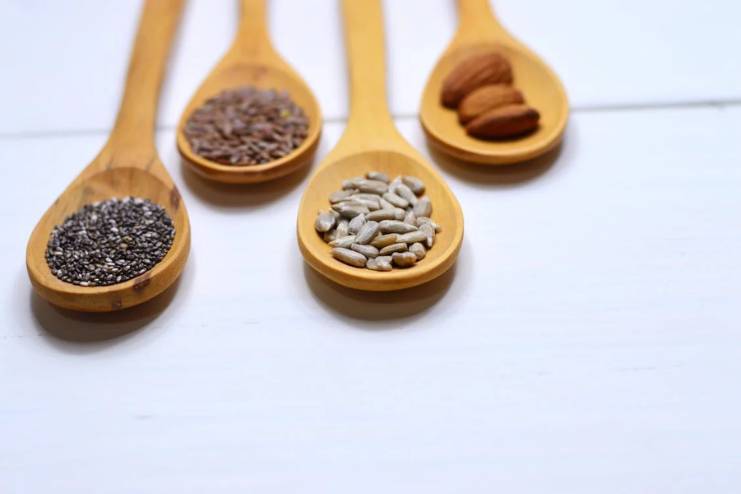
Omega-3 fatty acids are found in fish oil and flaxseed and have been associated with a variety of health benefits, including potential to act as natural anticoagulants. These essential, healthy fats are critical to reduce inflammation and prevent blood clots.
Omega-3 fatty acids, Eicosapentaenoic acid (EPA), and docosahexaenoic acid (DHA) are derived from fatty fish such as salmon, mackerel, and sardines. Alpha-linolenic acid (ALA) is another type of omega-3 that is primarily found in flaxseed, chia seeds, and walnuts. These fatty acids help lower blood pressure, cholesterol, and triglycerides in the blood and serve as an anti-inflammatory compound, thereby preventing blood clots.
Omega-3 fatty acids are anti-inflammatory. It also prevents platelet aggregation. By reducing production of thromboxane A2, a compound promoting clot formation, omega-3s facilitate smoother blood flow.
Numerous studies have highlighted the benefits of omega-3 fatty acids in cardiovascular health.
- A 2022 study suggests that a daily dose of 2 to 3 grams of omega-3 supplements may be beneficial for reducing inflammation and preventing blood clots.
6. Cayenne Pepper
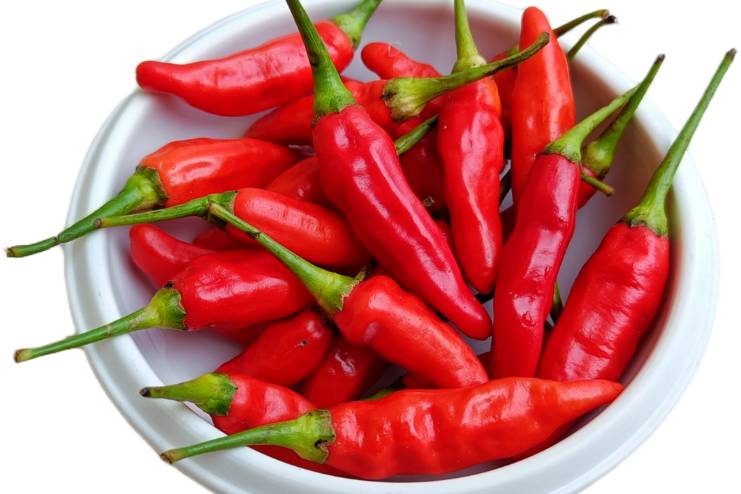
Apart from being a flavorful food additive, cayenne pepper improves blood circulation and inhibits blood clotting. Capsaicin is the active compound of cayenne pepper, responsible for its beneficial effects.
Capsaicin is responsible for the ‘heat’ of the cayenne pepper and is found to have blood thinning properties and promote blood circulation. It prevents platelet aggregation that may lead to blood clotting. Cayenne pepper also contains high levels of salicylates similar to aspirin, associated with anticoagulant attributes.
Although cayenne pepper is used for its anticoagulant blood-thinning properties, scientific evidence is emerging. Several studies indicate capsaicin can lower blood pressure and enhance circulation.
What Doesn’t Work
While there are plenty of natural remedies with health benefits, some turn out to be ineffective blood clot remedies. It’s essential to differentiate between scientifically supported treatments and those that lack evidence or pose risks. Here are some common natural remedies myths debunked and that do not work for preventing blood clots.
1. Apple Cider Vinegar

There is absolutely no scientific evidence to support such claims of its efficacy in preventing or treating blood clots. While apple cider vinegar has some connection to digestive benefits and blood sugar control, there is no research or study available that can prove it has any anticoagulant properties. Excessive intake of apple cider vinegar can lead to the erosion of teeth’ enamel and digestive disorders.
2. Herbal Teas
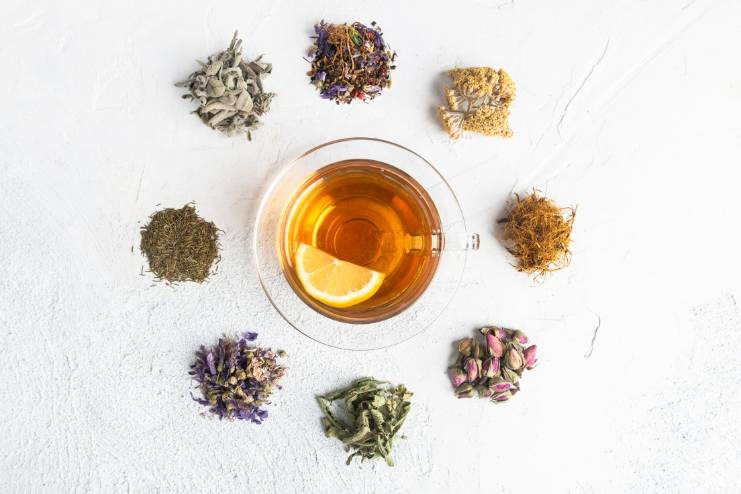
Herbal teas like chamomile, peppermint, and lavender are often recommended for their calming effects and digestive benefits. However, these herbal teas generally do not exhibit anticoagulant properties and are ineffective in the prevention of blood clots..
Risks and Importance of Professional Guidance

Relying on ineffective remedies for preventing blood clots is dangerous. Blood clots are a serious medical condition that must be treated and monitored properly.
It’s important to discuss your treatment plan with health professionals before trying any new remedies that could help prevent blood clots. Only a doctor can tailor a prevention plan. They can also check for interactions with medications and advise on other safe and effective treatments.
Conclusion
Some proven and effective natural remedies to reduce risks from clots are garlic, turmeric, ginger, ginkgo, cayenne, and ginseng. Omega-3 fatty acids are very good at decreasing inflammation and reducing the risk of clots, while garlic acts as a vasodilator.
Relying on unproven treatments can be harmful if they lead to delays in receiving appropriate treatment. Healthcare professionals can also offer personalized guidance based on individual health needs and recommend safe, effective strategies.
References
- https://pharmeasy.in/blog/natural-blood-thinners-research-based-guide-for-safe-alternatives/
- https://www.healthline.com/health/how-to-dissolve-blood-clots-in-legs#home-remedies
- https://pharmeasy.in/blog/home-remedies-for-blood-clots/
- https://www.healthline.com/health/dvt/home-treatment#herbs-for-prevention
- https://www.medicalnewstoday.com/articles/322384
- https://www.newindianexpress.com/lifestyle/health/2021/Mar/28/cure-the-clot-ways-to-prevent-theclump-of-blood-from-affecting-you-2281598.html
- https://link.springer.com/article/10.1007/s10068-018-0469-z
- https://www.ncbi.nlm.nih.gov/pmc/articles/PMC6966103/
- https://www.mdpi.com/2305-6320/2/3/157/htm
- https://pubmed.ncbi.nlm.nih.gov/29052850/
- https://www.ncbi.nlm.nih.gov/pmc/articles/PMC6459456/
- https://www.ncbi.nlm.nih.gov/pmc/articles/PMC4619316/
- https://www.ncbi.nlm.nih.gov/pmc/articles/PMC7551261/
- https://www.sciencedirect.com/science/article/abs/pii/S0045206819300628
- https://www.ncbi.nlm.nih.gov/pmc/articles/PMC9238708/
- https://www.ncbi.nlm.nih.gov/pmc/articles/PMC7551261/
- https://www.ncbi.nlm.nih.gov/pmc/articles/PMC10510223/
In this Article













